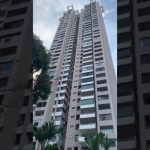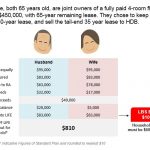2019 real estate investment volume stays strong with ample liquidity
A report by CBRE said that real estate investment volume stayed strong in 2019 as Singapore remains a top draw for foreign capital

Total real estate investment volume in Singapore for the year to date stands at S$22.83 billion (as of 13 December), a 31.8% drop from 2018. Although the lowest real estate investment volume since 2016, it can be considered a respectable performance with transactions of sizeable assets such as Duo, Mapletree Business City II and 30 Raffles Place (formerly known as Chevron House), said CBRE. Notably, all components (Office, Retail and Hotel) of the Duo integrated development, were sold for a total of S$2.050 billion.
With robust activity in the capital markets, REITs have been active in acquiring assets from their sponsors; such as the injection of Mapletree Business City into Mapletree Commercial Trust. In the first half of the year, Office assets have been in demand buoyed by steady leasing activity and healthy growth in office rents. Key office transactions include as the sale of 30 Raffles Place, Frasers Tower (50% stake), and 71 Robinson Road.
Residential and Office sectors lead the charge, Hospitality back in vogue
The Residential sector led the pack in driving real estate investment volume with the Office sector following closely.
Table of Contents
This was attributed mainly to public sales, where nine government land sale (GLS) sites with residential components were transacted. However, this trend is unlikely to continue given the build-up of unsold residential stock; land for residential development has also since been pared down in the 1H 2020 GLS programme.
As a result, investors turned their focus to hospitality, where hotel-related transactions in 2019 (S$2.15 billion) almost quadrupled its volume in 2018 (S$544.69 million). Optimism in the sector has been fuelled by surging tourist arrivals on the back of new attractions, as well as major events, conferences and exhibitions held in Singapore. This has lured traditional residential and commercial developers to join the fray.
Singapore remains a top draw for foreign capital
Mr Michael Tay, Senior Executive Director, Capital Markets at CBRE said: “Investment volume in 2020 is likely to remain resilient. The shrinking universe of investible assets will create challenges in deploying capital which may result in fewer mega transactions (those crossing the billion-dollar mark). Coupled with geopolitical risks and moderating economic growth, investors might also adopt a more cautious stance.”
He added: “Nevertheless, the backdrop of lower interest rates will likely support robust capital flows into real estate, with cheap debt and active fund raising in the capital markets. Furthermore, there has been anecdotal evidence of investors expressing interest in Singapore assets due to the city’s macroeconomic stability and its environment for mid to long term capital value appreciation. This will likely provide a boost to foreign capital inflows, as evidenced by a higher proportion of foreign capital this year (31.1%) as compared to 2018 (24.3%).”
But the question to ask is, is real estate investment the best way to beat inflation? Left uninvested and at the current rate of 2% inflation in Singapore, your money will lose 25.99% of its value in 20 years. This means your S$100,000 today will only be worth S$74,008 in 2038. Everything is affected by inflation, including the cup of coffee you had today. With inflation, the same cup you had today will be quarter lesser in 20 years.
Inflation is the financial equivalent of high blood pressure. You don’t see it, you rarely feel it, but it will kill you if you let it. If we think back to past year even, the price of goods and services doesn’t seem to have changed that much.. We only identify with the danger of inflation when we look back at our previous lives as children.
So how best to beat inflation? Some say that besides diversifying your portfolio, an investment property is the best way to beat inflation.
Yale economist and Nobel prize winner Robert Schiller in his book, Irrational Exuberance, says that over the very, very long-term property prices don’t beat inflation. In fact, by owning an investment property which you have not properly planned for, you may end up paying more than the actual worth of your property.
Having crunched the numbers, Shiller debates this topic openly and robustly. He says that, overall, the housing market doesn’t have a great long-term return. It barely outpaces inflation, in fact. He told USA Today: “If you look at the history of the housing market, it hasn’t been a good provider of capital gains. It is a provider of housing services…Capital gains have not even been positive. From 1890 to 1990, real inflation-corrected home prices were virtually unchanged.”
The Washington Post analyzed Shiller’s data and reported that, over the past 100 years, home prices have only grown at a compound annual rate of 0.3%, adjusted for inflation. The S&P 500, on the other hand, has had an annual return of 6.5%. That’s an awfully big difference.
But does Shiller’s hypothesis hold true for a small, land-scarce country like Singapore? Let’s analyse.
Take for example, if you were to take a 20-year-mortgage loan for $2 million which offers you 2% for the first 3-years and 2.5 per cent thereafter, you will be paying over $512,000 just in interests alone.
This means that if your investment property is worth about $3 million today, you would have paid over $3.5 million for it over a 20-year-period.
So is it a good deal to put money down on an investment property?
The Government’s Private Residential Property Price Index shows that prices of private properties had almost doubled in the last 20 years.
The Government data suggests that although a private property may dip sharply over certain years, observed over a longer 20-year-period, it always appreciates. So the lesson really is if you are a short term investor in Singapore’s residential properties, don’t overestimate the returns on this investment.
In fact, no investment property can guarantee a perpetual positive return. And there is always the probability that your rental returns cannot cover all expenses related to your investment – expenses like loan repayment, management fee, property tax and maintenance and repair cost.






